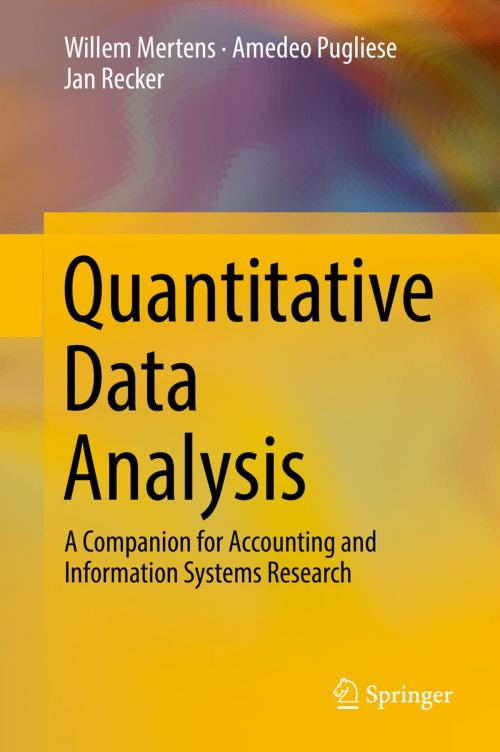Quantitative Data Analysis
A Companion for Accounting and Information Systems Research
Business & Finance, Economics, Statistics, Nonfiction, Computers, Application Software, Business Software| Author: | Willem Mertens, Amedeo Pugliese, Jan Recker | ISBN: | 9783319427003 |
| Publisher: | Springer International Publishing | Publication: | September 29, 2016 |
| Imprint: | Springer | Language: | English |
| Author: | Willem Mertens, Amedeo Pugliese, Jan Recker |
| ISBN: | 9783319427003 |
| Publisher: | Springer International Publishing |
| Publication: | September 29, 2016 |
| Imprint: | Springer |
| Language: | English |
This book offers postgraduate and early career researchers in accounting and information systems a guide to choosing, executing and reporting appropriate data analysis methods to answer their research questions. It provides readers with a basic understanding of the steps that each method involves, and of the facets of the analysis that require special attention. Rather than presenting an exhaustive overview of the methods or explaining them in detail, the book serves as a starting point for developing data analysis skills: it provides hands-on guidelines for conducting the most common analyses and reporting results, and includes pointers to more extensive resources. Comprehensive yet succinct, the book is brief and written in a language that everyone can understand - from students to those employed by organizations wanting to study the context in which they work. It also serves as a refresher for researchers who have learned data analysis techniques previously but who need a reminder for the specific study they are involved in.
This book offers postgraduate and early career researchers in accounting and information systems a guide to choosing, executing and reporting appropriate data analysis methods to answer their research questions. It provides readers with a basic understanding of the steps that each method involves, and of the facets of the analysis that require special attention. Rather than presenting an exhaustive overview of the methods or explaining them in detail, the book serves as a starting point for developing data analysis skills: it provides hands-on guidelines for conducting the most common analyses and reporting results, and includes pointers to more extensive resources. Comprehensive yet succinct, the book is brief and written in a language that everyone can understand - from students to those employed by organizations wanting to study the context in which they work. It also serves as a refresher for researchers who have learned data analysis techniques previously but who need a reminder for the specific study they are involved in.















